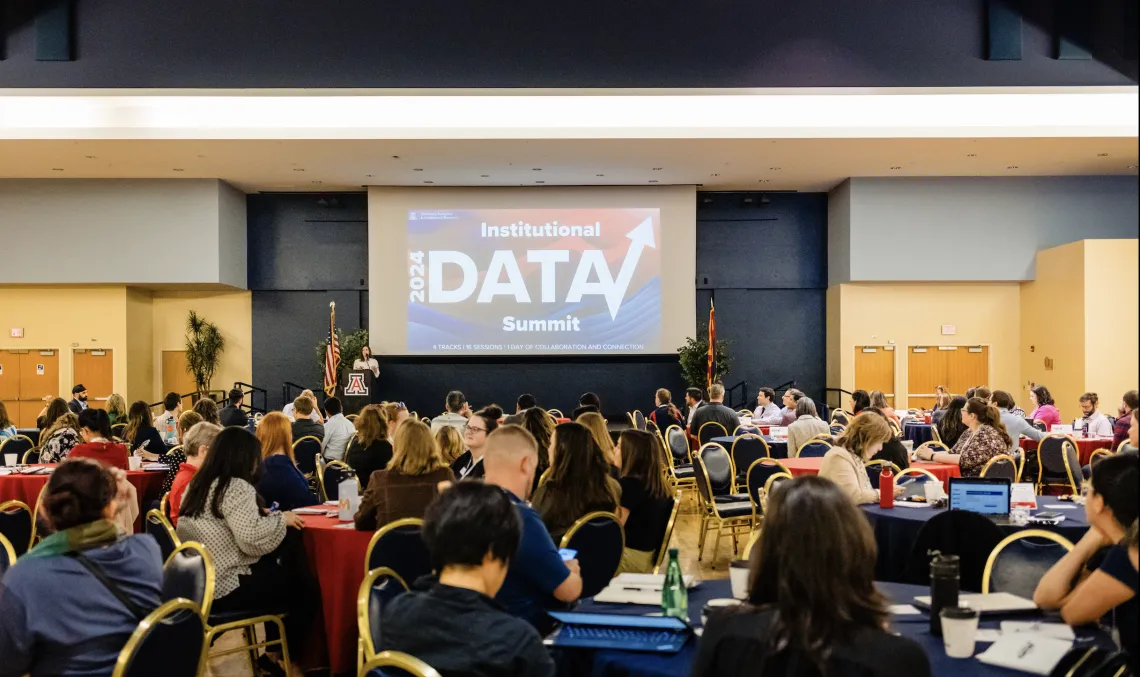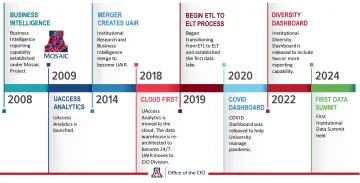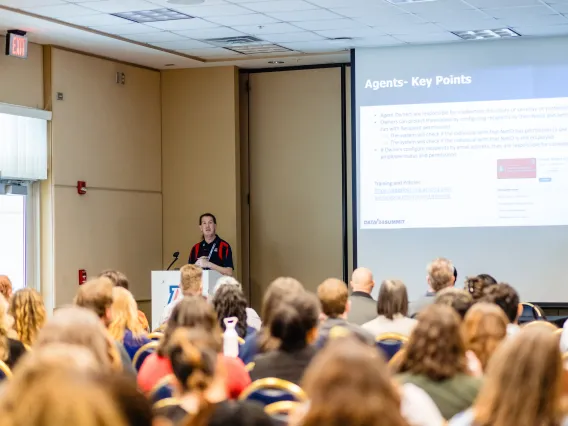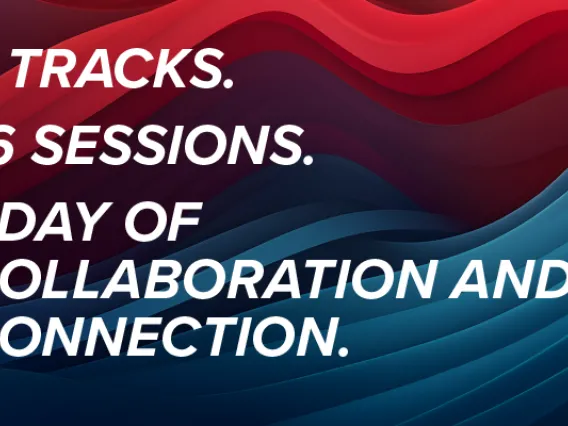A Day of Collaboration and Connection
Recap: UAIR Hosts Inaugural Institutional Data Summit

Photo Credits: Veronica Rodriguez, UCATT
This past week, UAIR kicked off a new, in-person, professional development opportunity for campus employees, UAccess Analytics users, and data enthusiasts alike. The inaugural 2024 Institutional Data Summit aimed to raise visibility on institutional data tools and resources available at our fingertips, and the data that impacts the University of Arizona every day.
Showcasing the innovative work being done in the institutional data space across UArizona’s ever-growing campus
The summit agenda included opening remarks, 16 breakout sessions, lunchtime activities, an afternoon keynote, and raffle prizes. Throughout the day, UAIR staff were ready and available to assist attendees with their data needs. Chief Data Officer and Associate Vice President, Ravneet Chadha, welcomed attendees in the morning with opening remarks, highlighting the inspiration and influences behind the planning and hosting of the Institutional Data Summit. “I am often humbled and delighted to hear feedback from our higher ed peers about where we stand as an institution across many facets… the University of Arizona remains a leader in higher education with regards to analytics and institutional research” Chadha stated in his remarks. Over 15 years, the university’s Enterprise Data Warehouse, facilitated by UAIR, has stored and provided access to roughly 8,500 tables that hold around 350,000 columns of data, adding up to nearly 30 billion rows of data. With hundreds of attendees present at the summit, university employees were encouraged to leverage available institutional data tools and help tell the Arizona story with data.
“…the University of Arizona combined its institutional research and business intelligence functions into a single unit with the creation of University Analytics and Institutional Research in 2014. Here we are ten years later, and I am honored to be leading this unit…” —Ravneet Chadha, CDO
The Institutional Data Summit uniquely aligned with UAIR’s 10-year anniversary as a department at the university, highlighting the culmination of the institution’s hard work and diligence in establishing a strong data culture across campus.
After Chadha’s welcome message, attendees took part in the summit’s breakout sessions, all of which fell under one out of four main tracks that guided the summit’s agenda—Institutional Data Overview, Focus on Administrative Data, Focus on Student Data, and Data Design, Visualization & Access.
“How many sponsored research proposals were submitted in fiscal year 2019?” Hint: Check the Interactive Fact Book!
At the lunch hour, attendees were encouraged to partake in a Digital Data Hunt using the Interactive Fact Book to find answers to various data questions related to the university. This activity aimed to highlight the wealth of knowledge and information available to the public via the UArizona Fact Book, a document that has been made available to campus since the 1970’s but launched as an interactive series of workbooks on the UAIR website in 2019. According to Ashley Hurand, Assistant Director for UAIR and Michael Principe, Senior Data Analyst, “The Fact Book is perhaps the most visible of all institutional research functions and serves as a prime example of how institutional research has evolved.” In facilitating access to this historical document for the institution, UAIR encourages engagement with the institution’s data and core reporting areas—the Digital Data Hunt serving as a prime example.
The power of our data community

The day ended with an illuminating keynote speech on the power of information and how data helps us to overcome biases. Barry Brummund, Chief Information Officer and Vice President of University Planning joined Data Summit attendees in the evening to discuss the changing landscape of higher education and how access to institutional data, facilitated by departments such as UAIR, can make a huge impact on higher ed perspectives and decisions. Brummund played a supportive role in the building of new business intelligence systems and upgrades to administrative systems back in 2008 via the university’s Mosaic Project, setting the stage for UAIR’s present-day work and responsibilities.
Accessing this year’s sessions
Hopefully, Institutional Data Summit attendees found the tools, resources, and connections needed to support their roles at the university and left with an optimistic outlook on UArizona’s strong data culture. For those who were unable to join in-person, sessions were recorded and will be made available on the UAIR website! Stay tuned to the UAIR Newsletter or keep an eye on updates to the website for summit session recordings.



